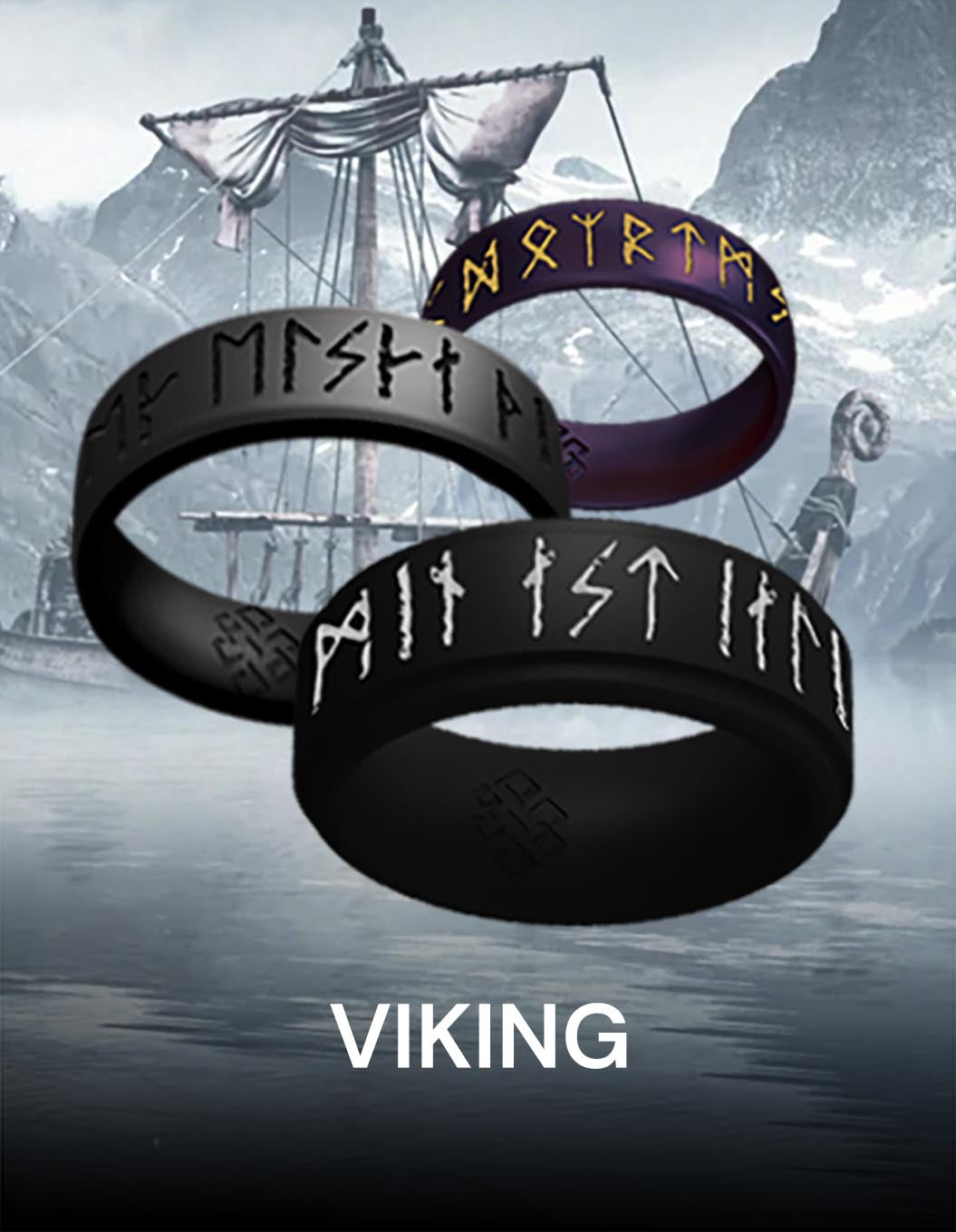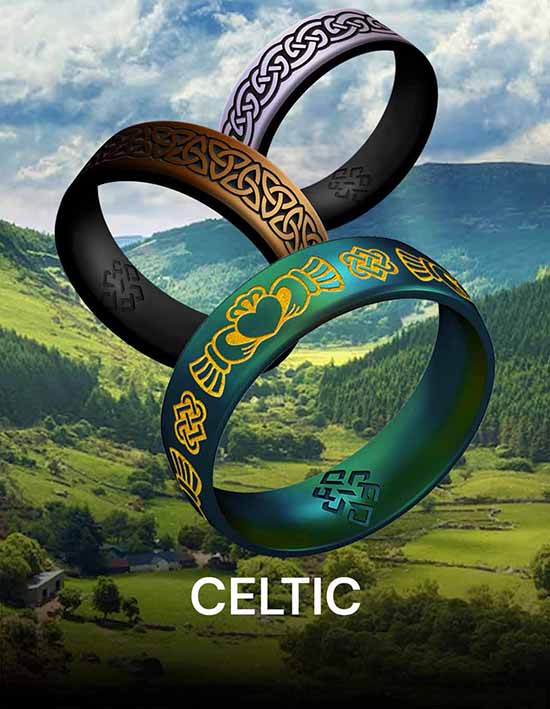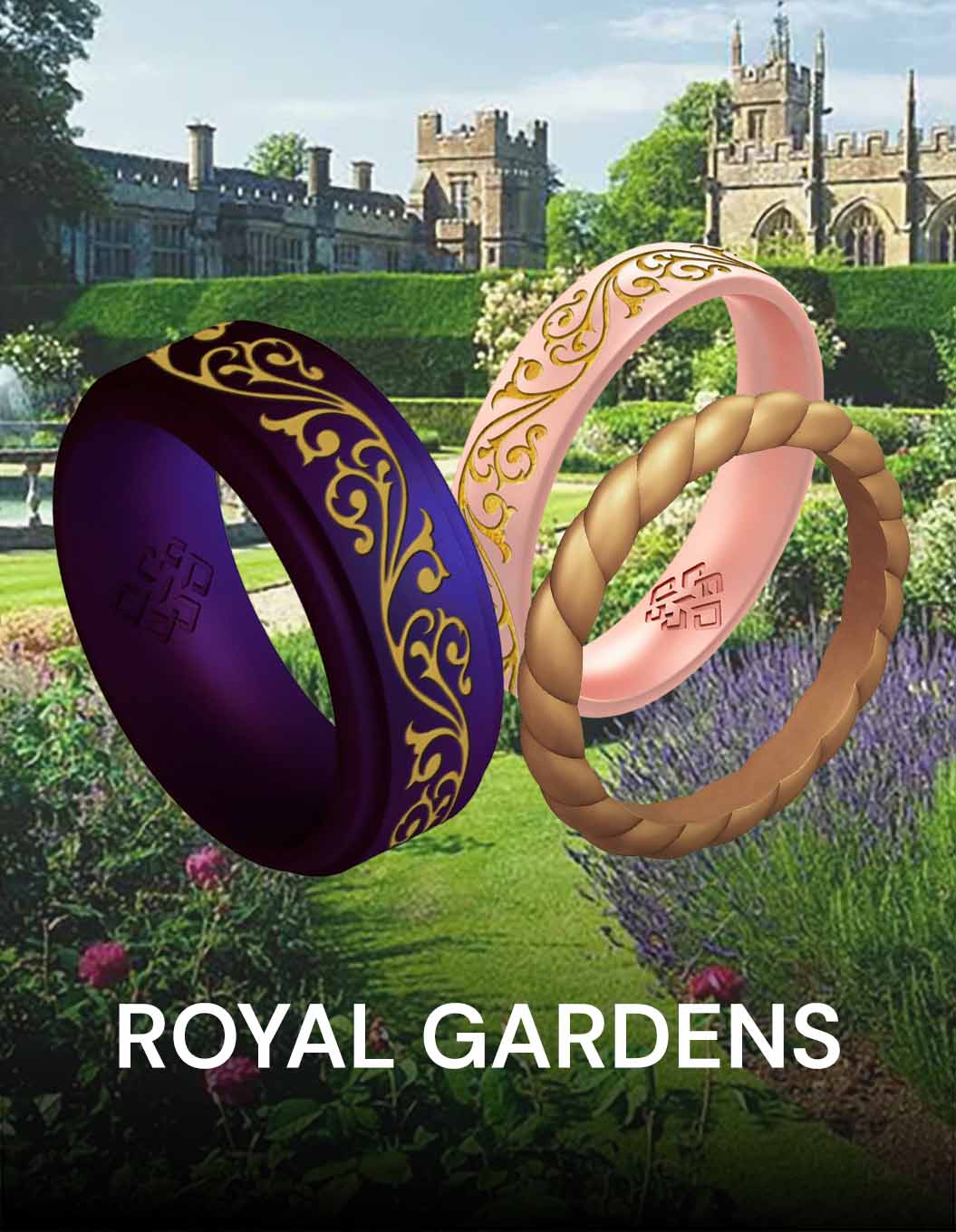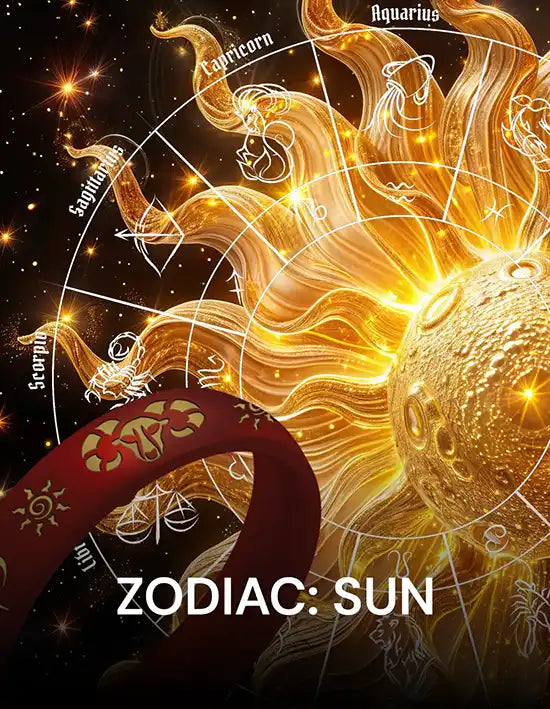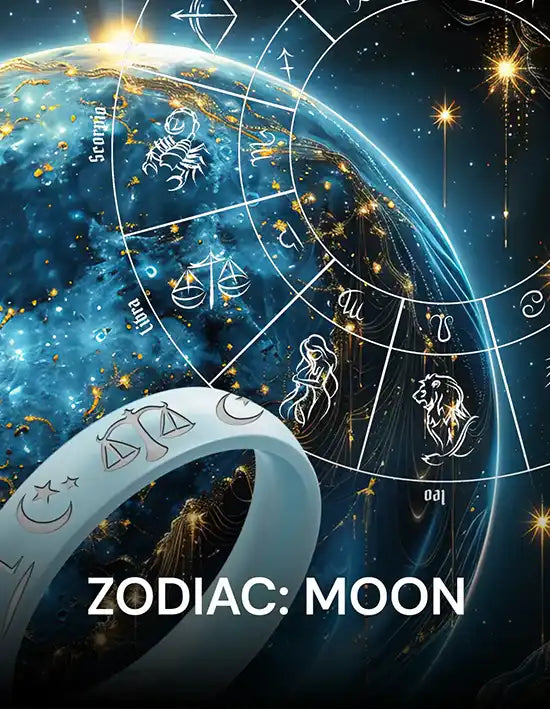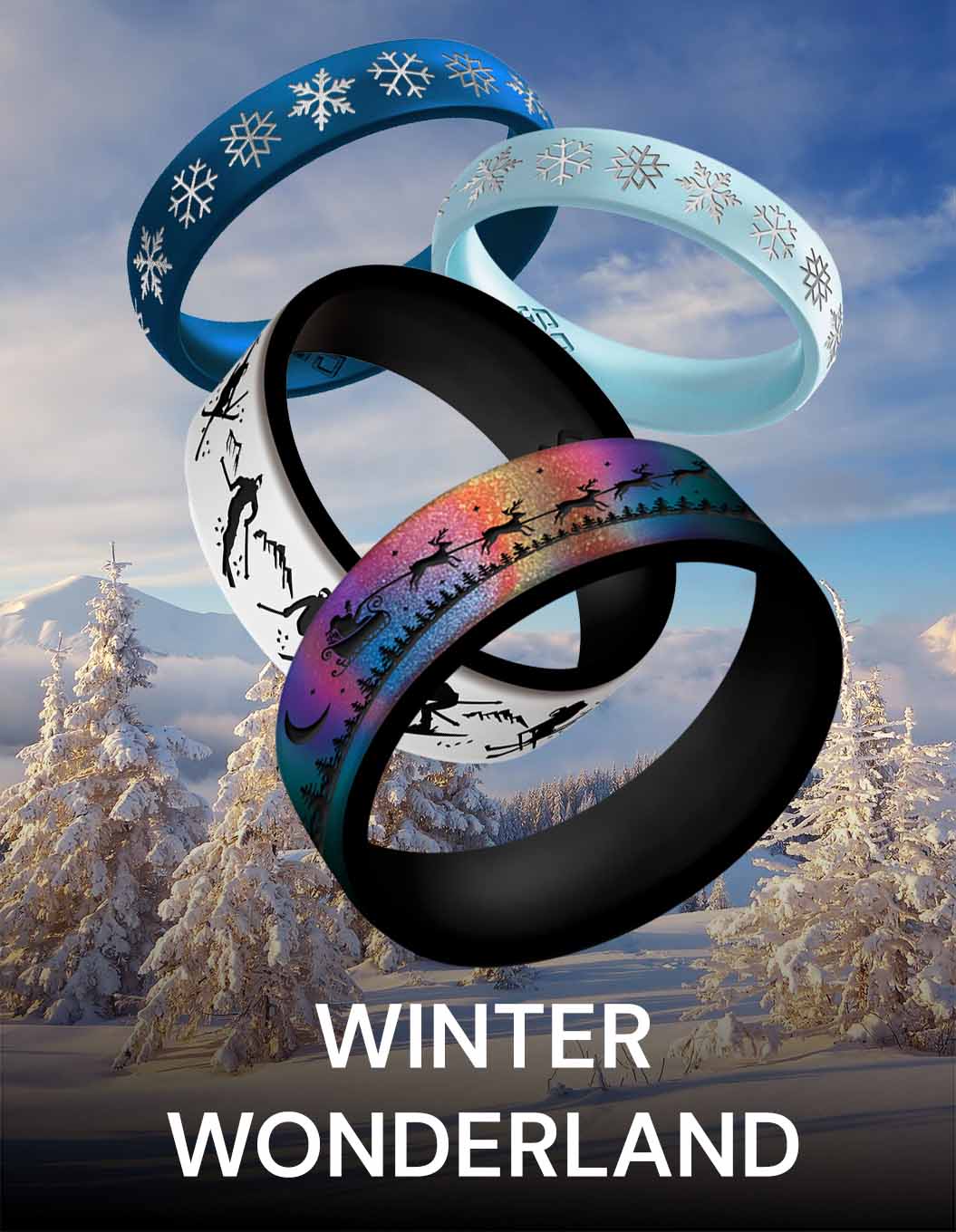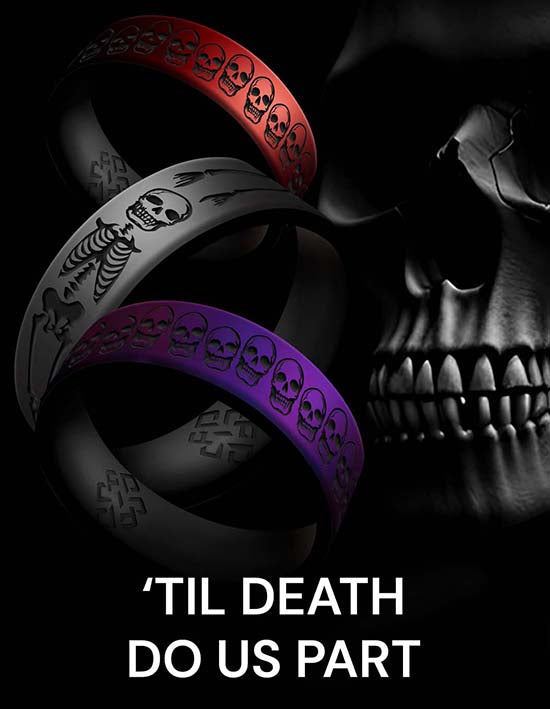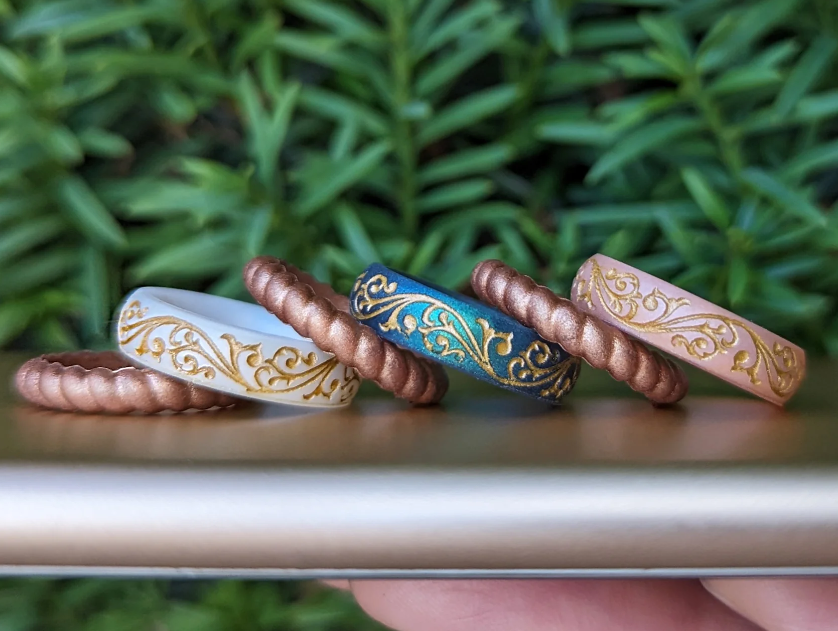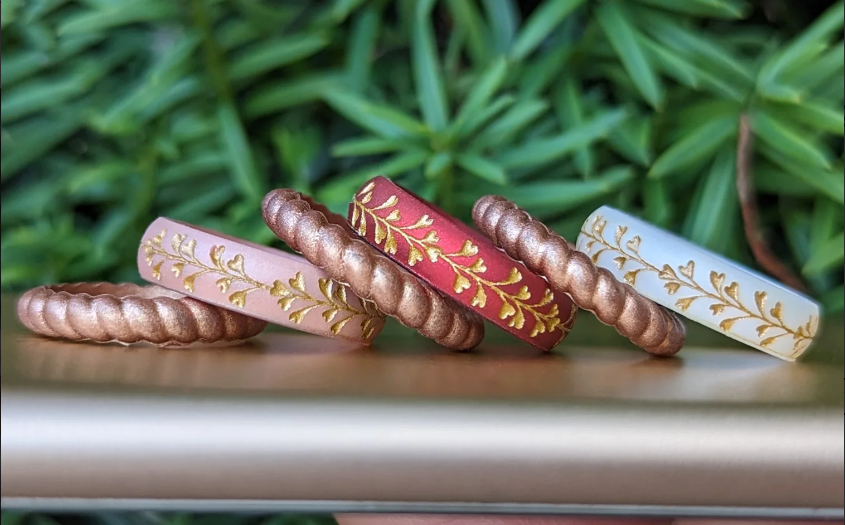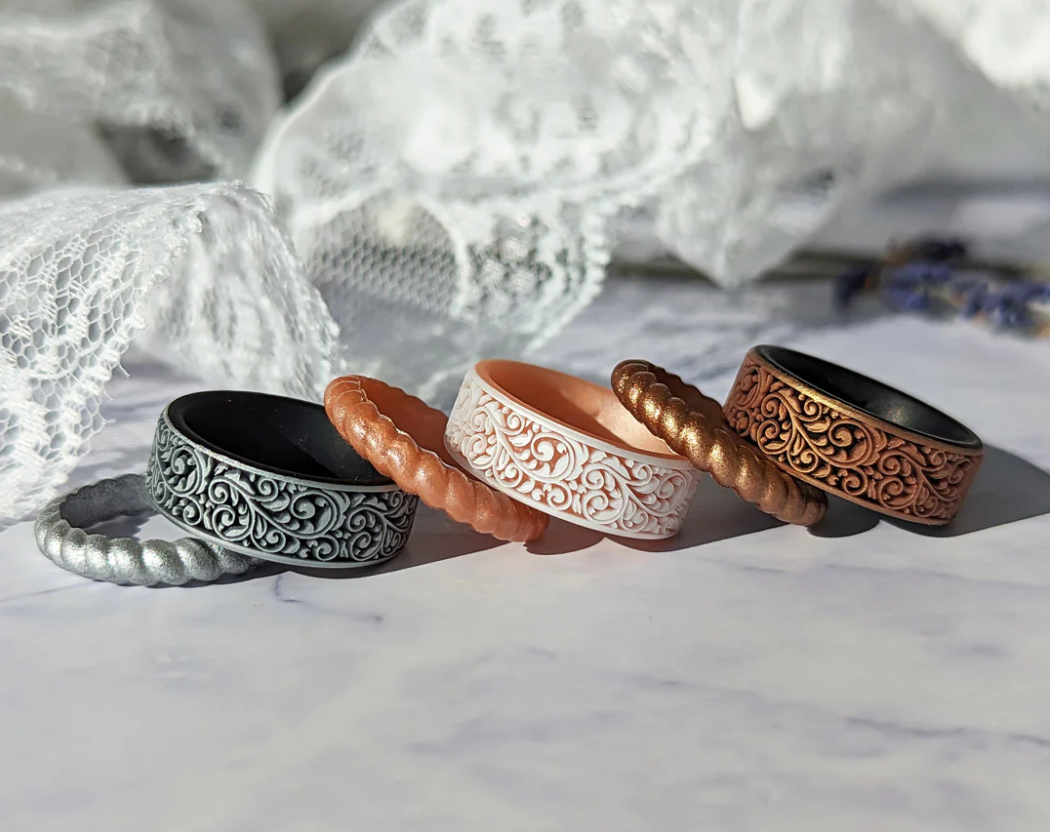
Lace Silicone Wedding Bands - The Most Stunning Silicone Rings
We set out to create a silicone wedding band that will be the envy of all other silicone wedding bands.
This ring features a pearl white outer layer and a rose gold inner layer. We came up with the most detailed lace design that tests the limits of our high-precision laser engraver.
The result is a stunning ring with an unprecedented ornate lace design.
We love it, and we hope you love it too!
The Origin of Lace
Lace has a rich history that dates back centuries, and its origin can be traced to various regions around the world. The exact origin of lace is debated, as similar techniques developed independently in different cultures. However, lace as we know it today gained prominence in Europe during the Renaissance period.
The origins of lace can be found in intricate embroidery and decorative needlework techniques. In ancient times, decorative trimmings and edgings were added to garments using techniques such as cutwork, drawn threadwork, and needle lace. Over time, these techniques evolved and merged to form what we now recognize as lace.
The meaning of lace has evolved throughout history. In the past, lace was a symbol of wealth, status, and refinement. It represented the fine craftsmanship and luxury associated with the upper classes. Lace was often used to adorn clothing, accessories, and even furnishings, signifying elegance and prestige.
Lace also carried symbolic meanings related to femininity, romance, and delicacy. It was associated with bridal attire, symbolizing purity and the sacred bond of marriage. Lace was often used in veils, wedding gowns, and bridal accessories, representing the intricate beauty and grace of the bride.
The origin and meaning of lace are intertwined with centuries of human creativity, craftsmanship, and cultural significance. From its humble beginnings in ancient decorative techniques to its status as a symbol of luxury and refinement, lace has left an indelible mark on the world of fashion and design, embodying both beauty and cultural heritage.
#bridgerton #janeausten

